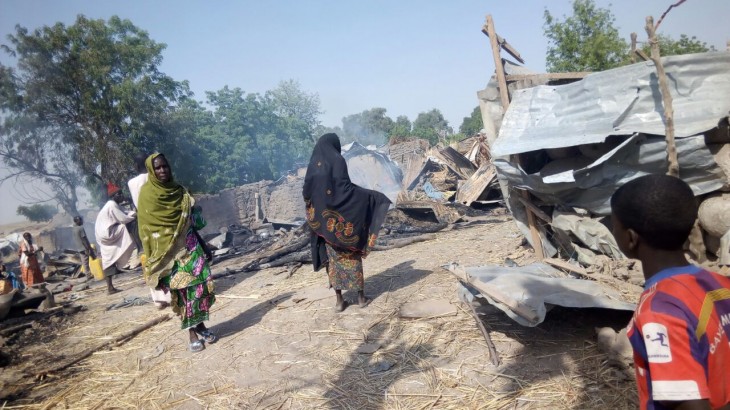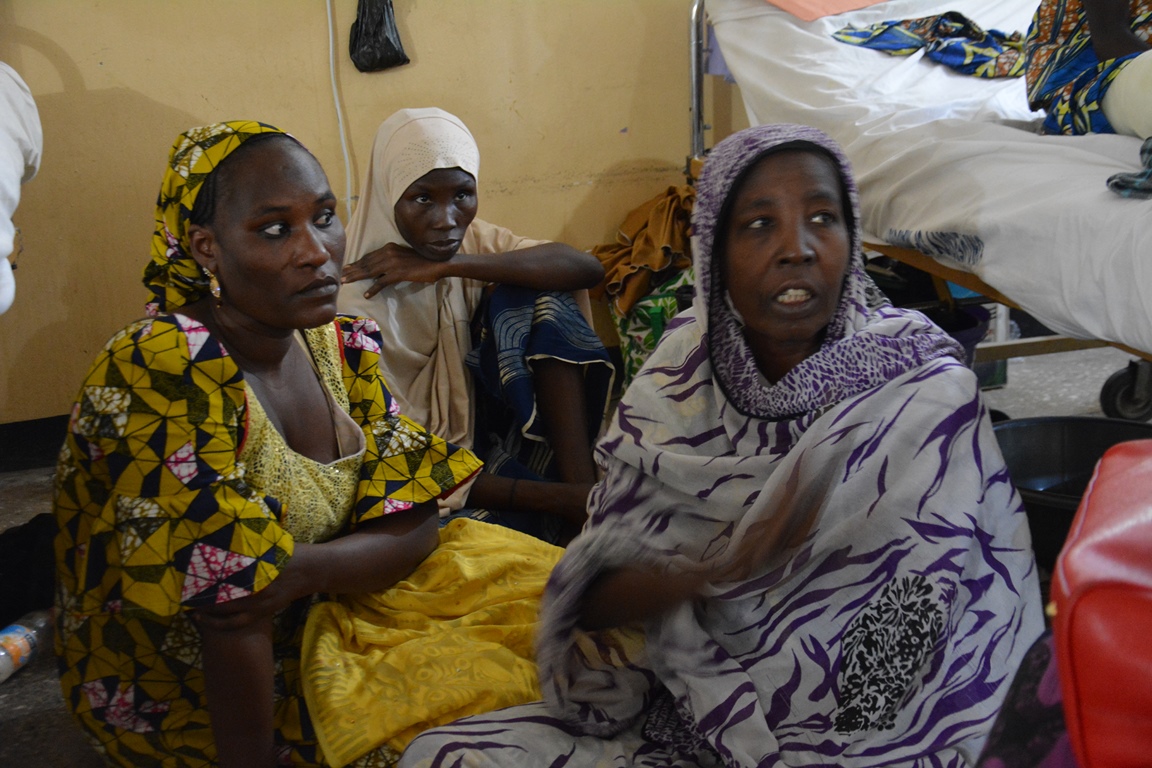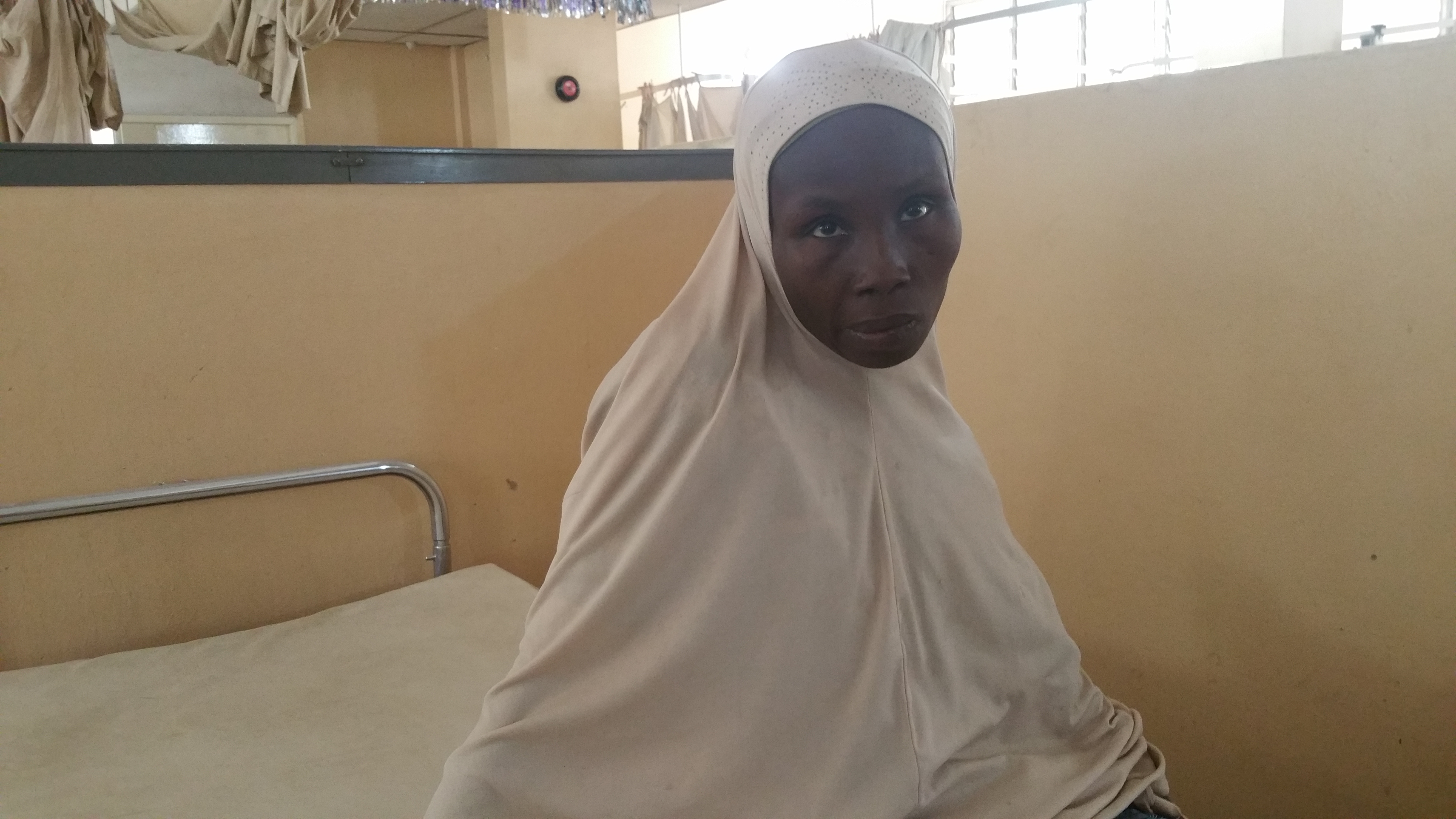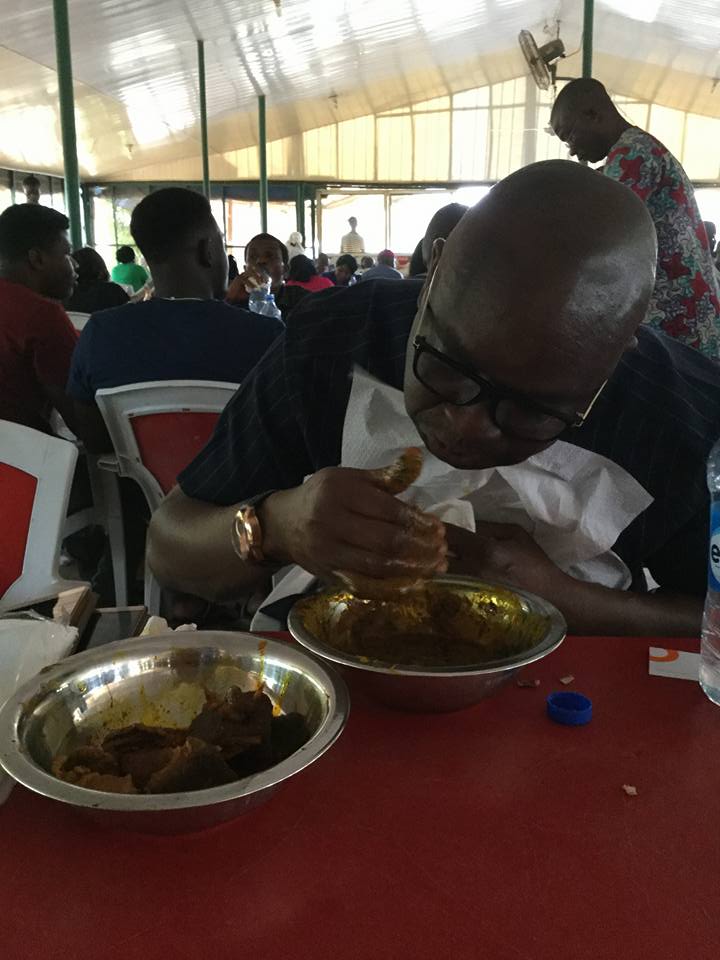“He died in the bathroom.”
Fighting her emotions with bravery, Fanne Abakar recalls the Nigerian air force misfiring of January 17, 2017 in Rann, Borno state, which left 126 aid workers and refugees – including her husband – dead.
“He was having his bath when the bombs came down.”
It was another loss too many for Abakar. She had lost a better part of her extended family to the insurgency in the northeast.
Advertisement
“I have no father, I have no brothers, my mother, and every other member of my family are all dead,” she says in Kotoko, one of the major languages in Rann.
Abakar was a petty trader in Kala Balge, one of the closest Nigerian local governments to Chad and Cameroon. She sold fried dough, popularly known as puff-puff, in a bid to support her husband and her eight children, who she had left.
Her husband, who was into menial jobs, was the breadwinner of the family. Before the peak of insurgency in the north-east, the family lived on her little income and that of her “hustling” husband.
Advertisement
As insurgency rocked the region, Abakar retreated from her puff-puff business, owing to the economic uncertainties that befell the region.
“My business started going down, I began losing money little-by-little, and I went out of cash. I couldn’t do anything, so my husband was the one taking care of me,” she tells TheCable through an interpreter.
THE DAY THE EVIL STRUCK

After moving from village to village, fleeing Boko Haram, Abakar’s family had settled in Rann, which was one of the safest places in the region. They lived in one of the houses which had been previously raided by Boko Haram.
According to her, the room, which later became their resting place, had no roof. Her family saw an empty room, without a cover, and sought to live there, putting up a stand-in roof “until peace returns”.
Advertisement
On January 17, 2017, 11-year-old Hauwa Abakar was sleeping next to her youngest sister – who was only two years old – in the makeshift building, their temporary home, when the evil struck.
The speed of a vigilant mother was not fast enough to save Hauwa and her siblings from the bombs which descended on them. Abakar immediately lost three of her youngsters to the unexpected rain of military might.
“Three of my children were killed in front of our room,” she recalls, revealing how confusion took over the area – which was a mix of individual houses and regular IDP camp settlement.
Aid workers, including staff of Médecins Sans Frontières (MSF), the Nigerian Red Cross Society, and the International Committee of the Red Cross (ICRC), took to the rescue.
Advertisement
But no amount of aid can bring back Abakar’s three children and husband.
She could not find Hauwa, and two of her other children, who were being treated by aid workers. Abakar thought she could also have lost more than she immediately had to bury. Considering how much damage she suffered, Abakar thought Hauwa was dead!
Advertisement
THE MIXED-FEELING REUNION

Abakar had too much on her plate: a burial of four, a search for three, and a means of livelihood for the days ahead. In all of these, she was not leaving her fate to chance but wanted to know for sure if her children were alive.
“We were always told that we would be reunited with our children, but that was not happening,” Abakar says, staring at the roof of the densely-populated University of Maiduguri Teaching Hospital ward, where she is speaking to TheCable.
Advertisement
“So, I decided to follow a truck transporting food to Rann. I joined the Red Cross truck to Maiduguri. We were many that came here looking for our children.”
After moving from hospital-to-hospital, Abakar found Hauwa, who was being treated at the University of Maiduguri Teaching Hopsital. For her, it was reunion of tears and joy.
Advertisement
A PASSIONATE PLEA FOR HELP
“After everything, the government had no hand in the burial, the people in Kala Balge assisted in the burial, and since my husband died, I have not been doing anything, I have noting to do. I would like the government to help,” she says.
“When my child is healed, I will go back, but I have nothing to get back to at Kala Balge. With my house bombed, I have nowhere to stay. Even the clothes I am putting on was a gift,” she mutters beneath sunken eyes.
For her, there is nothing else to do, but to concede the deadly attack to the hands of the supreme one.
“I am leaving everything to God.”
In the next part of the “Tears from Rann” series, you will get to meet Hauwa, who has now become a subject of neglect at the University of Maiduguri Teaching Hospital.
This is a special investigative project by Cable Newspaper Journalism Foundation (CNJF) in partnership with TheCable, supported by the MacArthur Foundation. Published materials are not the views of the MacArthur Foundation.







